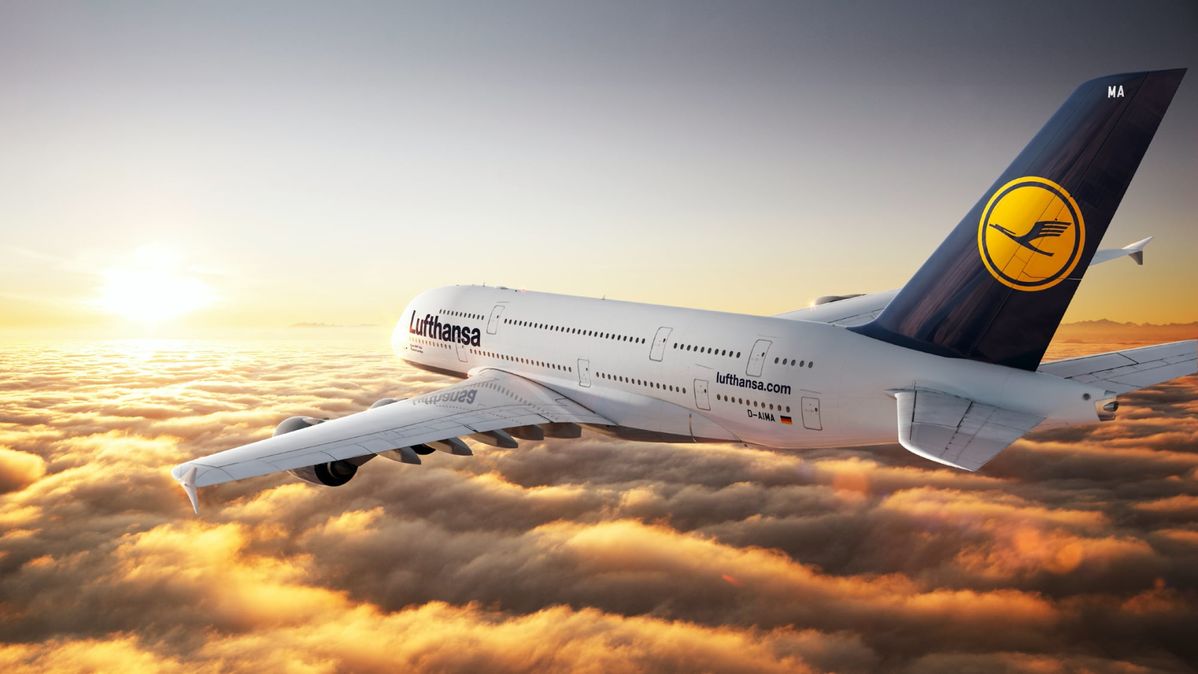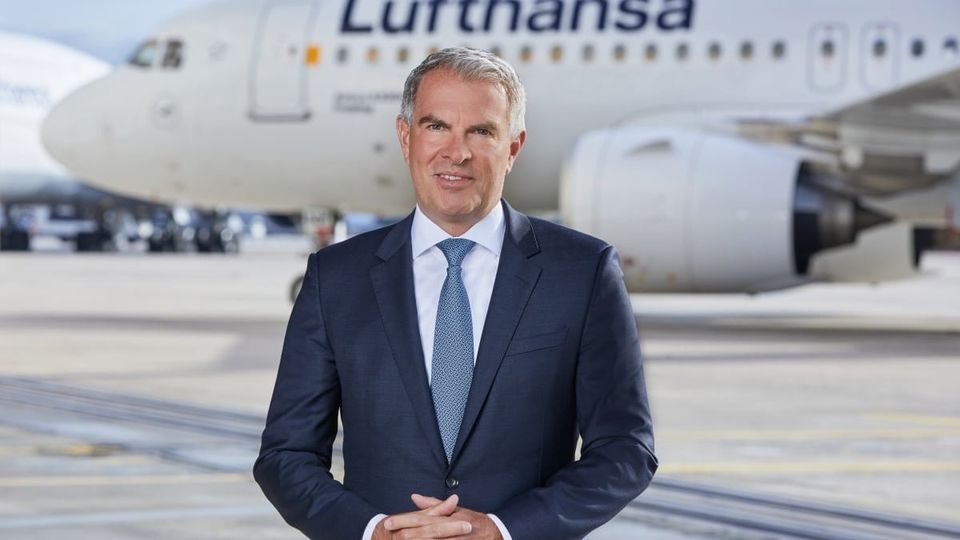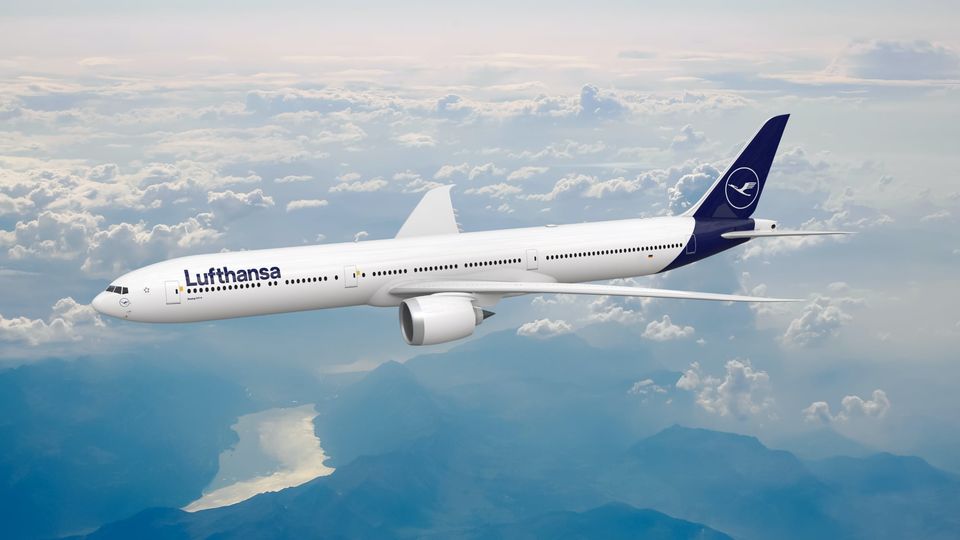German govt eyes 25% stake in Lufthansa in return for $16.8bn bail-out
Lufthansa charts a survival course into skies unknown, and says a return to the new normal won't be seen until 2023.

Germany’s government has set out a unified position on a bailout for Lufthansa, with the airline group expected to accept a significant state stake and veto rights in exchange for a multibillion-euro package of assistance, according to people familiar with the matter.
While details are still being negotiated, the economy and finance ministries have ironed out disagreements that dragged on for weeks, the people said, asking not to be named discussing the deliberations. The plan foresees Germany taking a least a 25% stake in the airline and receiving at least one seat on the firm’s supervisory board, the people said. The assistance could run to €10 billion (A$16.8 billion).
The size of Germany’s equity stake, whether part of it will be under a so-called silent participation that limits state control, and how many seats the government will have on Lufthansa’s supervisory board are still subject to negotiations, according to the people. Talks between the airline and the government are expected to stretch into next week, the people said.
"The future of Lufthansa is being decided in these days," Lufthansa Chief Executive Officer Carsten Spohr said, according to the text of a speech to be given at the company’s annual meeting on May 5. “It is about avoiding an insolvency with the help of the governments of our four home markets."
The airline, faced with a substantial loss in revenue due to the worldwide grounding of most of its fleet, is locked in multi-state bailout talks with the governments of Germany, Switzerland, Austria and Belgium. Lufthansa operates so-called flag carriers in all four nations, and has warned that it will run low on cash within weeks if it can’t reach an accord.
Traffic back to 1955 levels
Like airlines the world over, Lufthansa is wrestling with a crisis that’s punctured a decades-long aviation boom. The firm is scaling back its fleet and closing the Germanwings discount arm to resize the airline group for depressed levels of travel that could last for years.
"At the moment, we are only flying about 3,000 passengers a day," Sporh remarked. "In terms of flight schedule, our company has gone back in time to where it started in 1955 – a decade after the Second World War and following a 10-year ban on flights. In less than 65 days, we have returned to the levels of 65 years ago in terms of air traffic volume. That is extremely bitter, devastating and painful."
Around 700 aircraft in the group's 760-strong fleet is currently idle, in what Spohr defines as "the grounding phase" of Lufthansa's three-step crisis management plan.
"We are preparing to spend this summer on the ground and can hope for a proper restart in the autumn at the earliest," he predicted.
"However, it is going to be a very slow start-up phase and we expect that global demand will on only find its new balance in 2023. It will be new because it will be a balance on a lower level."
A different, smaller Luftansa
And in the new normal, "Lufthansa will be a different and smaller Lufthansa after the crisis."
The Lufthansa group will reduce the size of its fleet by about 100 aircraft, while a 200-strong order book – for aircraft including the Boeing 777-9 and 787-9, Airbus A350-900, A320neo and A321neo – will also be thinned.
"We are also in negotiations with aircraft manufacturers with regard to postponing aircraft deliveries because we will not be able to return to our old fleet size for an indefinite period," Spohr confirmed.
The airline needs financial aid from the government, but not management help, Spohr warned. Too much debt would weigh on its competitiveness for years. He said business will probably restart in fall at the earliest, and the company is doubling its target for annual unit cost savings.
Lufthansa understands it has little leverage in the talks with Germany, the people said, and an agreement is likely to be reached based on terms being outlined by the state. While the company is leaving all options open, it’s unlikely to seek court protection – an idea floated this week as a last resort – due to potential reputational damage with investors and financial markets, the people said.
A spokesman for Lufthansa said earlier that talks were ongoing.
Austrian stake?
The government in Vienna could also join the German government in taking an equity stake, people familiar with the matter said. Lufthansa’s Austrian Airlines has asked the state for aid close to €800 million, about €300 million of which may be equity, with the remainder loans, guarantees and non-repayable subsidies.
In a Wednesday meeting with Spohr, Austrian Chancellor Sebastian Kurz asked for guarantees to maintain and possibly extend Vienna airport as a hub for the group, according to people familiar with the talks. Austria is willing to take an equity stake in Lufthansa along with the German government, the people said.
“We took a step forward yesterday, the talks continue,” Austrian Finance Minister Gernot Bluemel told reporters on Thursday. Austria “isn’t ruling out anything,” he said, when asked if the country would consider taking a stake in Lufthansa.
Lufthansa’s Swiss and Edelweiss subsidiaries on Wednesday reached a deal to receive US$1.3 billion in credit guarantees from Switzerland’s government, the first plank in a bailout package the parent company is negotiating with the four governments. Talks with the Belgian government overt the fate of Brusssels Airlines are ongoing.
Additional reporting by David Flynn
This article is published under license from Bloomberg Media: the original article can be viewed here



Qantas - Qantas Frequent Flyer
11 Oct 2014
Total posts 687
I am just waiting to see the attitude of the EU and the resultant hypocrisy, if it is approved / tolerated.
For years, the EEC has winged, threatened and bitched at multiple European countries for attempting to 'support' their national carriers by way of 'subsidies'. Notably, Alitalia (Italy), Olympic (Greece), Malev (Hungary) and others such as Sabena (Belgium) have had to do the EU/EEC dance and either restrict or find ways around this policy.
Equally, for many years Lufthansa (LH) has followed a monopoly-building 'walled' strategy in creating a fortress LH ie: protect the core German airline by taking over local carriers in surrounding or adjacent countries. Now the impenetrable 'fortress' indeed shows that the "emperor has no clothes".
Whilst it may be an admirable (or even, justified) desire for the state Government(s) to assist LH in it's hour of need, as said, it will be entertaining to see the policy jumps / backflips that will be 'justified' as "event specific".
This is not a criticism of LH per se. More a question of the vision of EU/EEC policies and how 'purity' has the power to pervert.
Hi Guest, join in the discussion on German govt eyes 25% stake in Lufthansa in return for $16.8bn bail-out